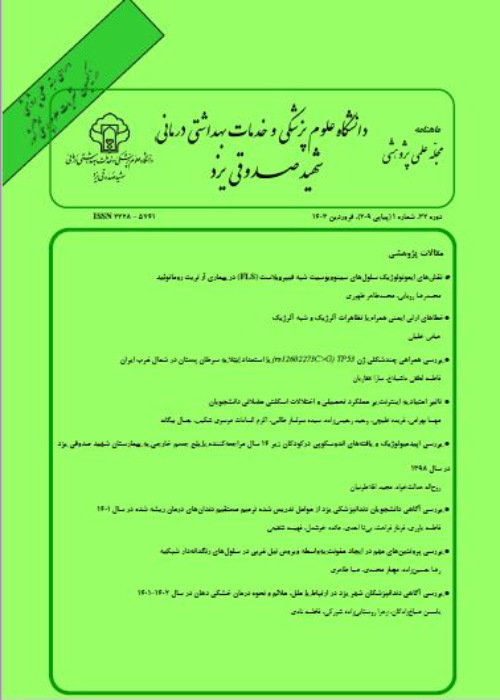Change in the Expression of BAK، FAS، BAX، TNF-A، BCL-2 and Survivin Apoptosis Genes of the Human Breast Adenocarcinoma Cells (MCF-7) by Staphylococcal Enterotoxin B
Breast cancer is one of the most prevalent malignancies among women. Patients whose suffering from this condition, as a result of the use of conventional therapies often have a poor response to treatment and the relapse among them is frequent. In this study, the effects of staphylococcal enterotoxin type B on BAK، FAS، BAX، TNF-a، BCL-2 و Survivin genes expression in human breast adenocarcinoma cells (MCF-7) was examined. Staphylococcal enterotoxin B is a powerful member of the Staphylococcus aureus toxins family, which is known as an anticancer agent with potential for killing cancer cells.
The experimental study was carried out at the Biotechnology Research Center of Islamic Azad University, Shahrekord Branch. By using Lipofectamine 2000 reagent, MCF-7 cells transfected with the pcDNA3.1(+)-seb (recombinant) and pcDNA3.1(+) (non-recombinant) plasmids and were selected by culturing in a selective medium of RPMI- 1640 containing 600 μg / mL antibiotic G418. Then, the expression of BAK, FAS, BAX, TNF-a, BCL-2, and Survivin genes in transfected cells were analyzed by real time PCR. Student's t-test, SPSS Inc., Chicago, IL; Version 16 and also Excel program for statistical analysis were used.
The results of this study indicated that staphylococcal enterotoxin type B (SEB) remarkably changes the expression of apoptotic related genes in MCF-7 cell line. It was observed a significant increase in the expression of BAK, FAS, BAX, and TNF-a genes, the expression of BCL-2 and Survivin genes significantly decreased compared to the control group (P=0/032).
Staphylococcal enterotoxin type B has an inhibitory effect on the growth, proliferation and invasion of breast adenocarcinoma cells through altering the expression of the genes involved in the apoptosis process. Therefore, it seems that there is a good research field for the use of this toxin in the control and treatment of human breast adenocarcinoma.
Breast cancer , Enterotoxin B , Apoptosis , MCF-7 , BAK , FAS , BAX , TNF-a , BCL-2 , Survivin
- حق عضویت دریافتی صرف حمایت از نشریات عضو و نگهداری، تکمیل و توسعه مگیران میشود.
- پرداخت حق اشتراک و دانلود مقالات اجازه بازنشر آن در سایر رسانههای چاپی و دیجیتال را به کاربر نمیدهد.


